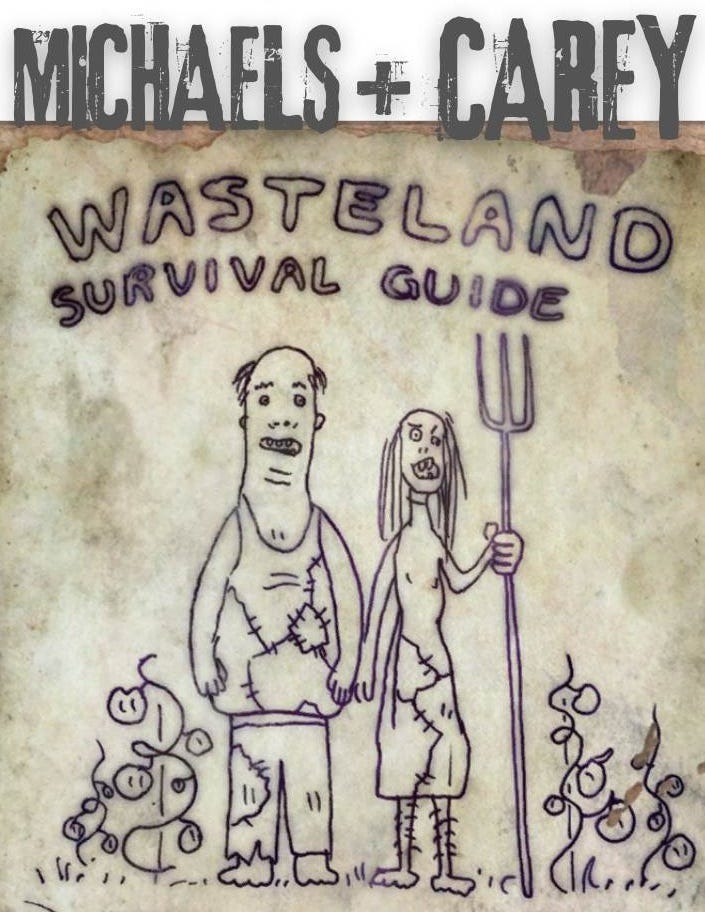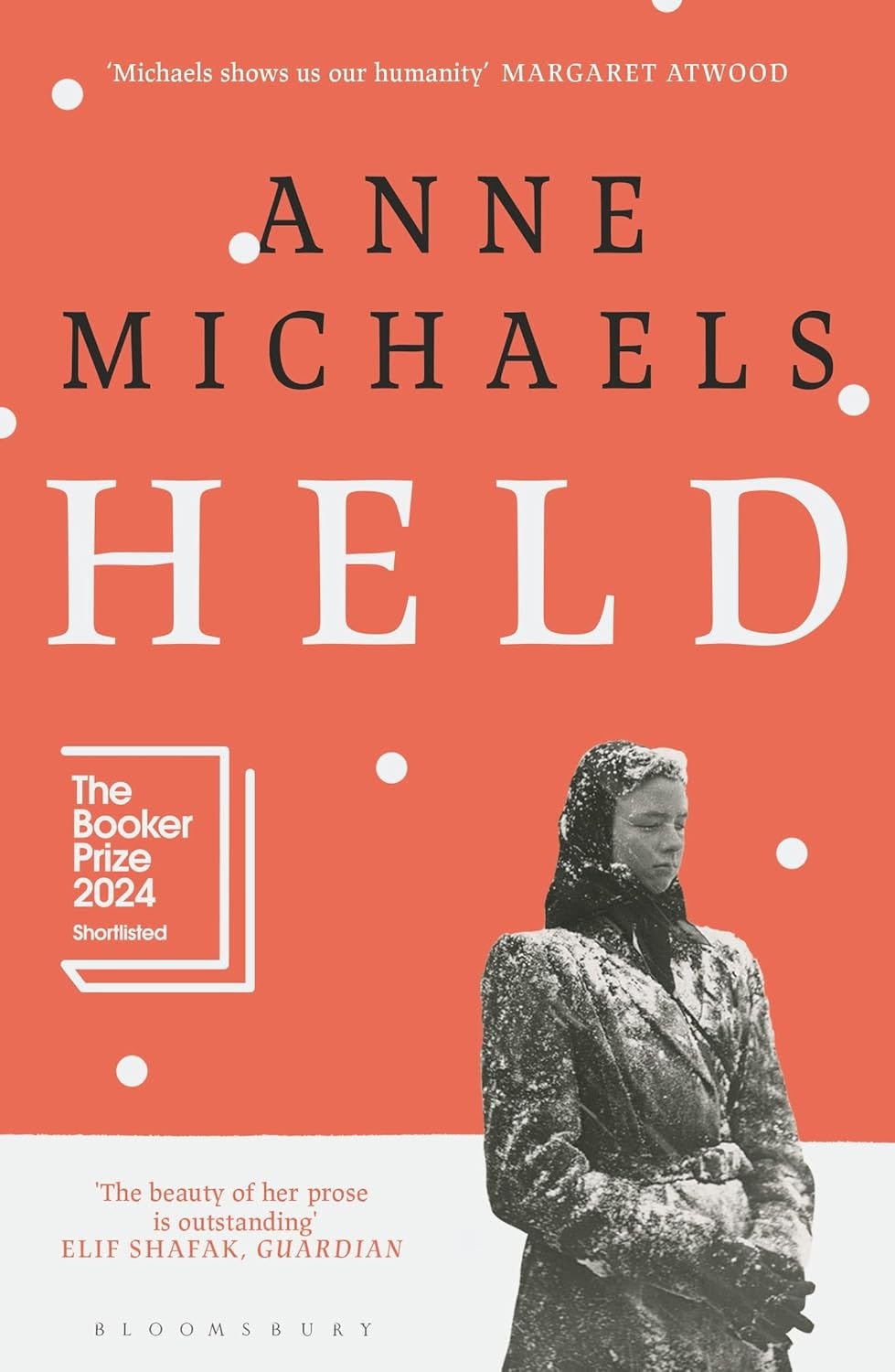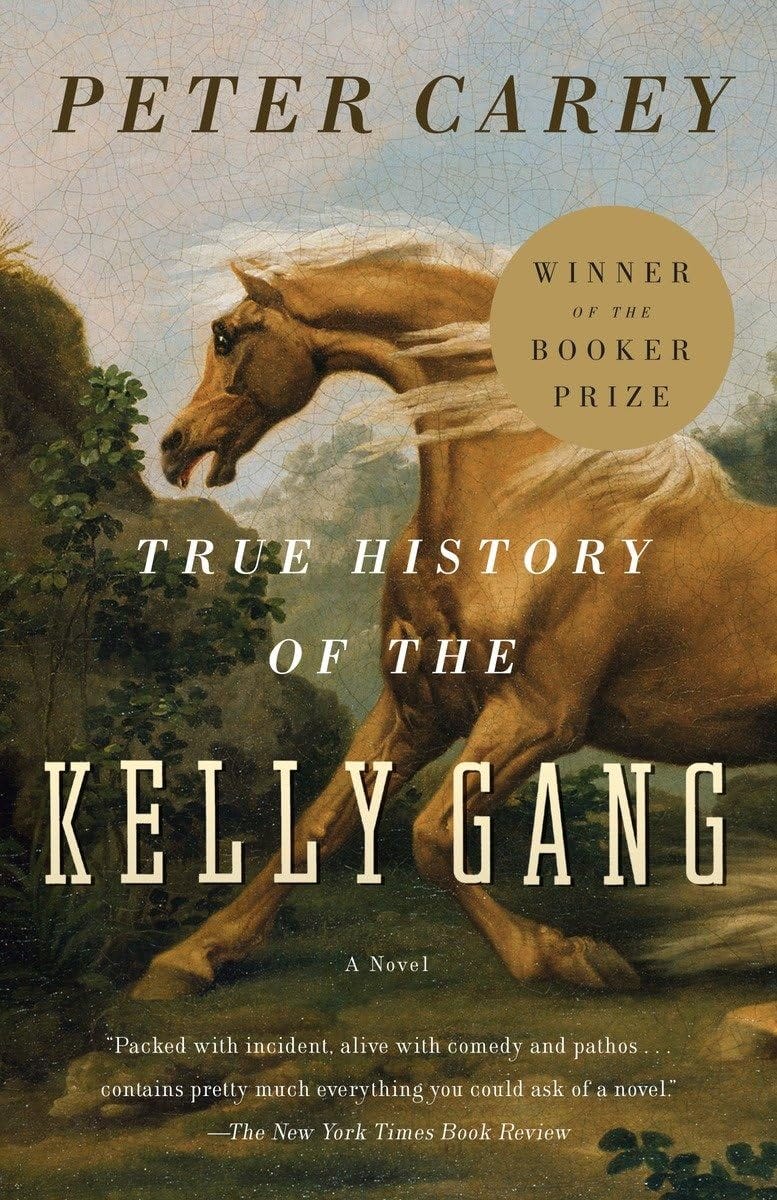The Booker Prize 2024: the best-written books on the shortlist
Plus the best-written previous winner of the century
COMING SOON:
—November is the busiest month for literary prizes, so we’ll be featuring the best-written books from their shortlists, and also from the century’s previous winners of these prizes. To avoid sending you too many posts, we’ll leave the recent releases until December.
—Eleanor Anstruther and Samuél Lopez-Barrantes will be joining me on the 16th of November for a live video discussion of what we mean by the term ‘literary’. All of you are welcome to join us, and you can find more information here, restacks of which would be appreciated.
IN TODAY’S ISSUE
—‘He did not believe that the mystery at the heart of things was amorphous or vague or a discrepancy, but a place in us for something absolutely precise. He did not believe in filling that space with religion or science, but in leaving it intact; like silence, or speechlessness, or duration’: one of the two best-written works on the shortlist for 2024’s Booker Prize. The winner will be announced on the 12th of November.
Our other pick is Samantha Harvey’s Orbital, which we also chose as the best-written work on the shortlist for this year’s Ursula K. Le Guin Prize for imaginative literature (you can read Orbital’s opening pages here). Harvey’s piece for us on prose style is here.
—‘I lost my own father at 12 yr. of age and know what it is to be raised on lies and silences my dear daughter you are presently too young to understand a word I write but this history is for you and will contain no single lie may I burn in Hell if I speak false’: the best-written previous winner of the Booker Prize, and one of the greatest-ever exhibitions of scuffed prose. This choice is part of our project to identify the best-written books of the century.
If you’d like us to consider your own recent release or a work you’ve serialised on Substack, sign up for a paid subscription via the button below and email a copy of your book to auraist@substack.com. If we pick your submission we’ll invite you to write an article on prose style that will be included in the published collection of these pieces.
A paid subscription also gives readers access to our full archive, including exclusive masterclasses on prose style. If you’re already a paid subscriber, thank you for getting behind Auraist and helping to support fine writing and writers.
Or you can join the 23K discerning readers who’ve followed us or subscribed for free access. Please note, though, that after a few weeks posts are only available to paid subscribers.
You can also browse dozens of author masterclasses on prose style, hundreds of picks from recent releases and prize shortlists, the best-written books of the century, and extracts from many of these.
Any thoughts related to our picks and masterclasses, or prose style generally? Email them to the above address and we’ll give you a complimentary six-month paid subscription.
Or you can join the 480 Substacks recommending Auraist and receive the same complimentary subscription.
THE SHORTLIST FOR THIS YEAR’S BOOKER PRIZE
James by Percival Everett
Orbital by Samantha Harvey
Creation Lake by Rachel Kushner
Held by Anne Michaels
The Safekeep by Yael van der Wouden
Stone Yard Devotional by Charlotte Wood
Our second pick from these is
I: RIVER ESCAUT, CAMBRAI, FRANCE, 1917
We know life is finite. Why should we believe death lasts forever?
*
The shadow of a bird moved across the hill; he could not see the bird.
*
Certain thoughts comforted him: Desire permeates everything; nothing human can be cleansed of it.
We can only think about the unknown in terms of the known.
The speed of light cannot reference time.
The past exists as a present moment.
Perhaps the most important things we know cannot be proven.
He did not believe that the mystery at the heart of things was amorphous or vague or a discrepancy, but a place in us for something absolutely precise. He did not believe in filling that space with religion or science, but in leaving it intact; like silence, or speechlessness, or duration.
Perhaps death was Lagrangian, perhaps it could be defined by the principle of stationary action.
Asymptotic.
Mist smouldered like cremation fires in the rain.
*
It was possible that the blast had taken his hearing. There were no trees to identify the wind, no wind, he thought, at all. Was it raining? John could see the air glistening, but he couldn’t feel it on his face.
*
The mist erased all it touched.
*
Through the curtain of his breath he saw a flash, a shout of light.
*
It was very cold.
Somewhere out there were his precious boots, his feet.
He should get up and look for them.
When had he eaten last?
He was not hungry.
*
Memory seeping.
*
The snow fell, night and day, into the night again. Silent streets; impossible to drive. They decided they would walk to each other across the city and meet in the middle.
The sky, even at ten o’clock at night, was porcelain, a pale solid from which the snow detached and fell. The cold was cleansing, a benediction. They would each leave at the same time and keep to their route, they would keep walking until they found each other.
*
In the distance, in the heavy snowfall, John saw fragments of her—elliptic, stroboscopic—Helena’s dark hat, her gloves. It was hard yet to tell how far away she was. He shook the snow from his hat so she might see him too. Yes, she lifted her arms above her head to wave. Only her hat and gloves and the powdery yellow blur of the streetlamps were visible against the whiteness of sky and earth. He could barely feel his feet or his fingers, but the rest of him was warm, almost hot, from walking. He pulsed with the sight of her, the vestige of her. She was everything that mattered to him. He felt inviolable trust. They were close now but could not make their way any faster. Somewhere between the library and the bank, they gripped each other as if they were the only two humans left in the world.
*
Her small ways known only to him. That Helena matched her socks to her scarf even when no one could see them in her boots. That she kept beside the bed, superstitiously unfinished, the novel she had been reading in the park the day they understood they would always be together. The paper-thin leather gloves she found in the pocket of the men’s tweed coat she bought from the jumble sale. Her mother’s ring that she wore only when she wore a certain blouse. That she left her handbag at home and slipped a five-shilling note in her book when she went to the park to read. The boiled sweets tin she kept her foreign change in.
*
Helena carried the handbag he had bought for her on the Hill Road, soft brown leather, with a clasp in the shape of a flower. She wore the silk scarf she had found in the market, made hers now by her scent, autumn colours with a dark green border, and her tweed coat with velvet under the collar. How many times had he felt that velvet when he held open her coat for her. A finite number. Every pleasure in a day or a life, numbered. But pleasure was also countless, beyond itself—because it remained, even only in memory; and in your body, even when forgotten. Even the stain of pleasure and its taunting: loss. The finite as unmanageable as the infinite.
*
They walked to his flat and left their wet clothes at the door. No need to turn on the lights. The blinds were up, the room snow-lit. White dusk, impossible light. John was always surprised, he never stopped being astonished, at how little there was of her, she was tiny it seemed to him, and so gentle and fierce he couldn’t breathe. He had bought the scented powder she liked and he filled the tub. He added too much and the foam spilled over the steaming edge. “A snowbank,” she said.
*
The young soldier was lying only a few metres away. How long had the boy been staring? John wanted to call out to him, make a joke of it, but couldn’t find his voice.
*
Pinned to the ground, no weight upon him. Who would believe light could fell a man.
'Through luminous moments of chance, change, and even grace, Michaels shows us our humanity' MARGARET ATWOOD
'Michaels is exceptionally open to beauty' GUARDIAN
RECOMMENDED:
You may doubt for a while that Twin Peaks: The Return’s as historically notable as the invention of language. You’re going to see much sooner, though, that performances of Shakespeare’s plays at the original Globe, Europe’s discovery of the Americas, the Crucifixion of Christ, or the Buddha’s enlightenment beneath his tree are perfectly reasonable comparisons, if anything somewhat underegged. Because the fact is that something took place in recent years whose historic nature is easily on a par with those events, and you can watch clips of it anytime you want.
Think of it. You were around when the two biggest diddies of the last three thousand centuries were alive and kicking and diddying about the place, two white male septuagenarian US reactionaries with attention-grabbing hair and the most galootish megalomania ever witnessed, and also when the most grotesque art catastrophe of all those centuries occurred. And one was lauded as the greatest exponent of our most influential artform, one as the greatest example of that artform, and one was handed the nuclear firepower to destroy life on earth forever. What a time to be alive!
THIS CENTURY’S PREVIOUS BOOKER WINNERS
2001 True History of the Kelly Gang by Peter Carey
2002 Life of Pi by Yann Martel
2003 Vernon God Little by DBC Pierre
2004 The Line of Beauty by Alan Hollinghurst
2005 The Sea by John Banville
2006 The Inheritance of Loss by Kiran Desai
2007 The Gathering by Anne Enright
2008 The White Tiger by Aravind Adiga
2009 Wolf Hall by Hilary Mantel
2010 The Finkler Question by Howard Jacobson
2011 The Sense of an Ending by Julian Barnes
2012 Bring Up the Bodies by Hilary Mantel
2013 The Luminaries by Eleanor Catton
2014 The Narrow Road to the Deep North by Richard Flanagan
2015 A Brief History of Seven Killings by Marlon James
2016 The Sellout by Paul Beatty
2017 Lincoln in the Bardo by George Saunders
2018 Milkman by Anna Burns
2019 The Testaments by Margaret Atwood; Girl, Woman, Other by Bernardine Evaristo
2020 Shuggie Bain by Douglas Stuart
2021 The Promise by Damon Galgut
2022 The Seven Moons of Maali Almeida by Shehan Karunatilaka
2023 Prophet Song by Paul Lynch
The best-written of these is
PARCEL 1
His Life until the Age of 12
National Bank letterhead. Almost certainly taken from the Euroa Branch of the National Bank in December 1878. There are 45 sheets of medium stock (8" × 10" approx.) with stabholes near the top where at one time they were crudely bound. Heavily soiled.
Contains accounts of his early relations with police including an accusation of transvestism. Some recollections of the Quinn family and the move to the township of Avenel. A claim that his father was wrongly arrested for the theft of Murray’s heifer. A story explaining the origins of the sash presently held by the Benalla Historical Society. Death of John Kelly.
I lost my own father at 12 yr. of age and know what it is to be raised on lies and silences my dear daughter you are presently too young to understand a word I write but this history is for you and will contain no single lie may I burn in Hell if I speak false.
God willing I shall live to see you read these words to witness your astonishment and see your dark eyes widen and your jaw drop when you finally comprehend the injustice we poor Irish suffered in this present age. How queer and foreign it must seem to you and all the coarse words and cruelty which I now relate are far away in ancient time.
Your grandfather were a quiet and secret man he had been ripped from his home in Tipperary and transported to the prisons of Van Diemen’s Land I do not know what was done to him he never spoke of it. When they had finished with their tortures they set him free and he crossed the sea to the colony of Victoria. He were by this time 30 yr. of age red headed and freckled with his eyes always slitted against the sun. My da had sworn an oath to evermore avoid the attentions of the law so when he saw the streets of Melbourne was crawling with policemen worse than flies he walked 28 mi. to the township of Donnybrook and then or soon thereafter he seen my mother. Ellen Quinn were 18 yr. old she were dark haired and slender the prettiest figure on a horse he ever saw but your grandma was like a snare laid out by God for Red Kelly. She were a Quinn and the police would never leave the Quinns alone.
My 1st memory is of Mother breaking eggs into a bowl and crying that Jimmy Quinn my 15 yr. old uncle were arrested by the traps. I don’t know where my daddy were that day nor my older sister Annie. I were 3 yr. old. While my mother cried I scraped the sweet yellow batter onto a spoon and ate it the roof were leaking above the camp oven each drop hissing as it hit.
My mother tipped the cake onto the muslin cloth and knotted it. Your Aunt Maggie were a baby so my mother wrapped her also then she carried both cake and baby out into the rain. I had no choice but follow up the hill how could I forget them puddles the colour of mustard the rain like needles in my eyes.
We arrived at the Beveridge Police Camp drenched to the bone and doubtless stank of poverty a strong odour about us like wet dogs and for this or other reasons we was excluded from the Sergeant’s room. I remember sitting with my chilblained hands wedged beneath the door I could feel the lovely warmth of the fire on my fingertips. Yet when we was finally permitted entry all my attention were taken not by the blazing fire but by a huge red jowled creature the Englishman who sat behind the desk. I knew not his name only that he were the most powerful man I ever saw and he might destroy my mother if he so desired.
Approach says he as if he was an altar.
My mother approached and I hurried beside her. She told the Englishman she had baked a cake for his prisoner Quinn and would be most obliged to deliver it because her husband were absent and she had butter to churn and pigs to feed.
No cake shall go to the prisoner said the trap I could smell his foreign spicy smell he had a handlebar moustache and his scalp were shining through his hair.











